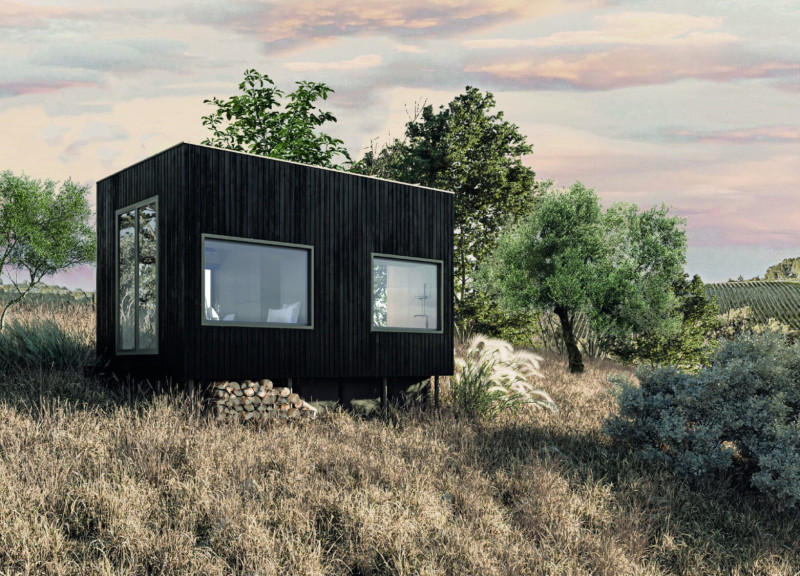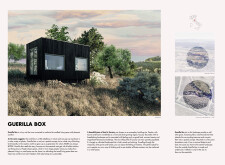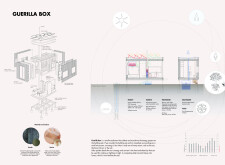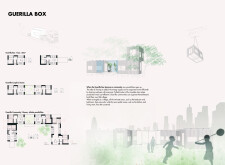5 key facts about this project
## Project Overview
The Guerilla Box is situated in Tuscany, Italy, amidst a landscape characterized by rolling hills and olive groves. This design seeks to redefine contemporary living by emphasizing minimalism, comfort, and sustainability. It serves as a versatile living unit, capable of relocation and adaptation to diverse environments, promoting an integrated relationship with nature.
### Spatial Organization
The spatial arrangement is oriented towards functionality and comfort, featuring an open-concept living and dining area that connects seamlessly with the outdoors through large windows, providing panoramic views of the surrounding landscape. The kitchen is compact yet efficient, designed to facilitate social interaction while conserving space. Key private areas, such as the bathroom and bedroom, are thoughtfully planned to maximize usability while ensuring privacy. Flexible elements such as sliding doors allow users to modify space configurations according to their needs.
### Environmental Considerations
This project emphasizes sustainability through several initiatives. Renewable energy sources, including solar panels and a wind turbine, are incorporated into the design to enhance energy efficiency. Water management strategies feature rainwater harvesting and environmentally responsible wastewater solutions, significantly minimizing ecological impacts. The integration of outdoor terraces further encourages interaction with the natural environment, allowing for a cohesive living experience that respects and enhances the local ecosystem.
### Materiality
Material choices reflect both aesthetic and functional intentions. The facade is clad in charred wood, which provides durability while contributing to a striking visual presence. Inside, warm-toned woods create an inviting atmosphere, while expansive glass elements facilitate natural light and outdoor connectivity. The use of timber for the structural frame offers both strength and flexibility, and high-performance insulated glass enhances thermal efficiency, promoting a sustainable indoor climate.






















































